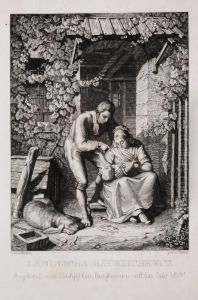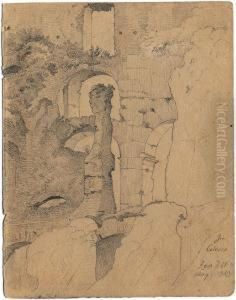Christian Ernst Stolzel Paintings
Christian Ernst Stoltzel was a notable German baroque composer and musician, born on June 30, 1690, in Grünstädtel, Saxony. His musical inclinations were evident from a young age, and he was fortunate to receive a broad education that included training in music. Stoltzel's early experiences included a stint as a choirboy in the prestigious Dresden Kreuzchor, which provided him with a solid foundation in vocal music and possibly early composition skills.
After his voice broke, Stoltzel pursued further education in Law at the University of Leipzig, which was a common practice among musicians of the time, providing a practical backup career. However, his passion for music prevailed, and he soon devoted himself entirely to his musical career. He traveled extensively throughout Europe to study and work, which was typical for musicians seeking to expand their horizons and learn from different traditions.
Stoltzel's travels took him to places like Italy, where he was exposed to the Italian style of composition that was to heavily influence his work. He also spent time in Prague and Bayreuth, where he worked in various musical capacities. In 1720, he was appointed Kapellmeister in Gotha, which was a significant position that allowed him to compose and perform his own music as well as direct musical activities at court.
His compositions cover a wide range of baroque genres, including operas, oratorios, cantatas, and instrumental music. Stoltzel was particularly admired for his vocal compositions, which are characterized by their melodious quality and expressive depth. His work was well-received during his lifetime, and he had a successful career, balancing his duties in Gotha with opportunities that arose elsewhere.
Stoltzel passed away on November 27, 1767, in Gotha. While his music was not as widely known after his death, particularly in the face of the rising Classical style, recent interest in baroque music has led to a reevaluation of his work and its place in the musical heritage of the period. Today, Stoltzel is recognized as an important figure in the late baroque era, and his music is occasionally performed and recorded, offering listeners a glimpse into the rich tapestry of 18th-century German music.


